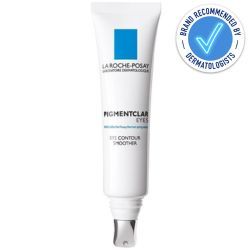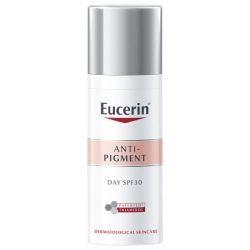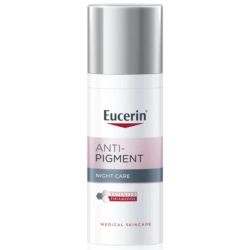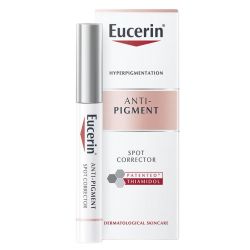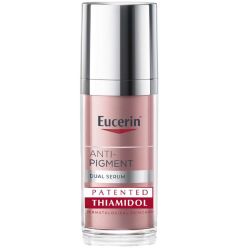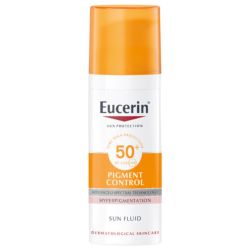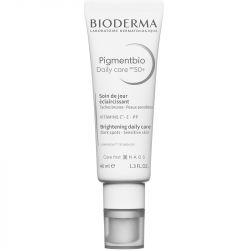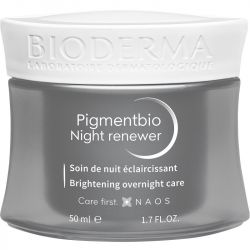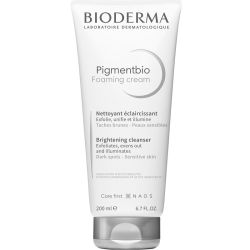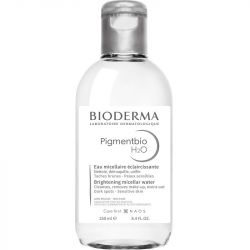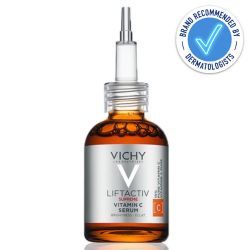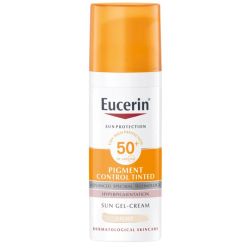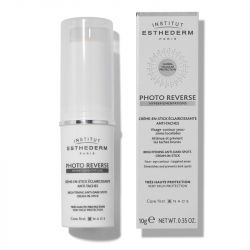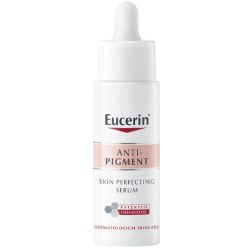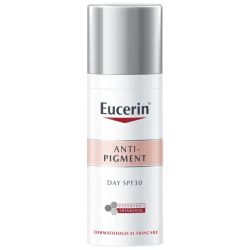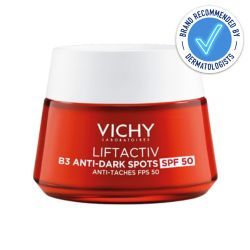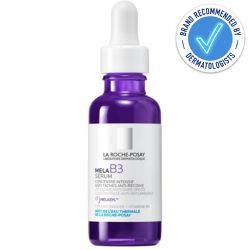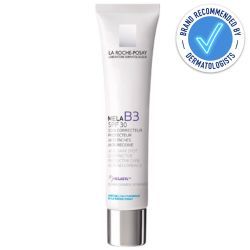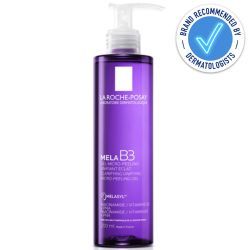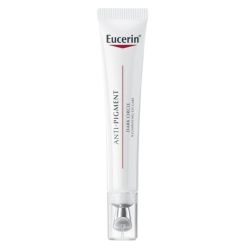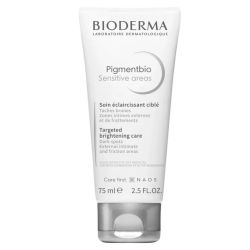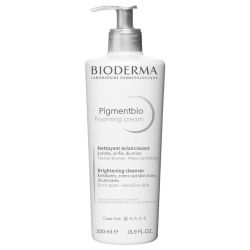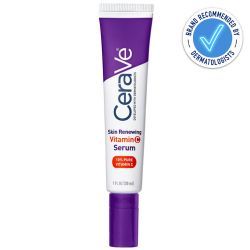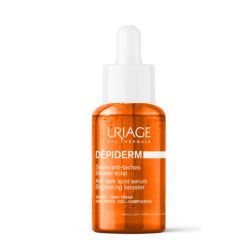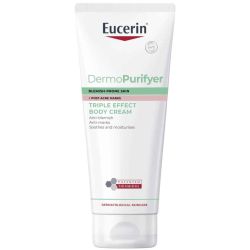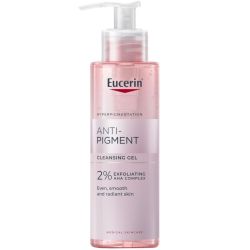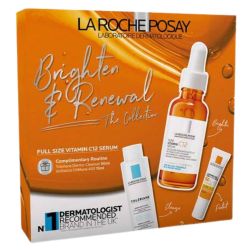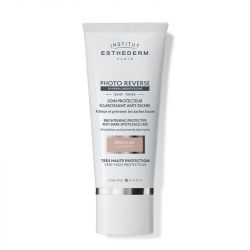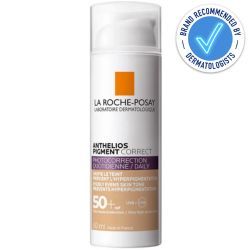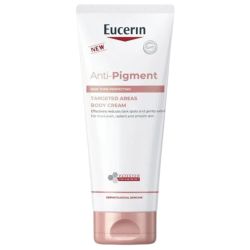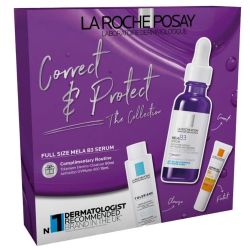Skincare for Hyperpigmentation & Dark Spots
Hyperpigmentation and dark spots occur when the skin produces excess melanin, the pigment responsible for skin colour. This overproduction is often triggered by factors such as sun exposure, hormonal changes (e.g., during pregnancy or from contraceptives), acne scars, or skin inflammation. Certain dermatological conditions like melasma and post-inflammatory hyperpigmentation (PIH) further contribute to uneven skin tone, leaving areas of the skin darker and more noticeable. Hyperpigmentation can affect any skin type, but those with darker skin tones may experience it more prominently due to higher melanin levels.
Dermatological skincare is highly effective for managing hyperpigmentation because it targets the root causes with scientifically backed ingredients. Expert skincare for hyperpigmentation brighten dark spots, inhibit melanin production, and even out discolouration, whilst reducing inflammation.
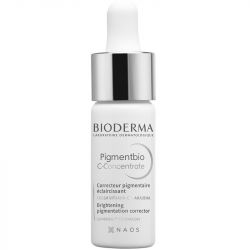 Bioderma Pigmentbio C-Concentrate Brightening Corrector 15mlSpecial Price £23.20 Regular Price £29.00
Bioderma Pigmentbio C-Concentrate Brightening Corrector 15mlSpecial Price £23.20 Regular Price £29.00- Esthederm Photo Reverse Brightening Anti-Dark Spots Cream-In-Stick 10gSpecial Price £40.00 Regular Price £50.00
- La Roche-Posay Mela B3 Anti-Dark Spots and Hyperpigmentation Serum 30mlSpecial Price £36.00 Regular Price £48.00
- La Roche-Posay Mela B3 SPF 30 Anti-Dark Spots Moisturiser 40mlSpecial Price £24.00 Regular Price £32.00
- Bioderma Pigmentbio Brightening Care for Sensitive Area 75mlSpecial Price £18.50 Regular Price £22.50
- CeraVe Skin Renewing 10% Pure Vitamin C Serum with Ceramides 30mlSpecial Price £21.75 Regular Price £29.00
- La Roche-Posay Brighten and Renewal: The Collection with Vitamin C12Special Price £27.38 Regular Price £36.50
- Esthederm Photo Reverse Anti-Dark Spots Tinted Face Care 50mlSpecial Price £52.80 Regular Price £66.00Out of stock
- La Roche-Posay Anthelios Pigment Correct SPF50+ 50mlSpecial Price £24.38 Regular Price £32.50Out of stock
- Eucerin Anti-Pigment Targeted Areas Body Cream 200mlSpecial Price £19.20 Regular Price £24.00Out of stock
- La Roche-Posay Correct and Protect: The Collection with Mela B3Special Price £28.88 Regular Price £38.50Out of stock
Dermatological FAQ's: Hyperpigmentation Skincare & Treatments
What causes hyperpigmentation and dark spots?
Hyperpigmentation and dark spots occur when the skin produces excess melanin, the pigment responsible for skin colour. This can be triggered by factors such as sun exposure, hormonal changes (e.g., during pregnancy or from birth control pills), acne scars, or skin inflammation. Dermatological conditions like melasma or post-inflammatory hyperpigmentation (PIH) also contribute to uneven skin tone and discolouration.
A targeted skincare routine for hyperpigmentation should include:
- Vitamin C serum: Brightens skin and reduces dark spots by inhibiting melanin production.
- Niacinamide: Reduces redness and regulates melanin production for even skin tone.
- Exfoliants: AHAs like glycolic acid or BHAs like salicylic acid promote cell turnover to fade pigmentation.
- Sunscreen: Broad-spectrum SPF 30+ to prevent UV-induced hyperpigmentation.
How do I treat redness and hyperpigmentation together?
For redness and hyperpigmentation, opt for products that address both concerns gently. Ingredients like niacinamide, azelaic acid, and ceramides can soothe inflammation while reducing pigmentation. Dermatologically tested products like La Roche-Posay Mela B3 Serum Intense or Eucerin Anti-Pigment Dual Serum target pigmentation and redness without irritating the skin.
How long does it take to see results from hyperpigmentation treatments?
Results vary depending on the severity of hyperpigmentation and the treatment used. Most topical treatments, like show noticeable improvements in 4-12 weeks with consistent use. For more severe cases, dermatological treatments like chemical peels or laser therapy may accelerate results.
What ingredients should I look for in products to treat hyperpigmentation and dark spots?
- Thiamidol: Found in Eucerin Anti-Pigment products, proven to reduce dark spots.
- Vitamin C: Brightens and reduces melanin production.
- Azelaic acid: Targets redness and pigmentation while soothing inflammation.
- Niacinamide: Balances skin tone and reduces redness.
- Retinol: Accelerates cell turnover, promoting the fading of pigmentation and evening out the skin tone.
- Melasyl: Found in La Roche-Posay's Mela B3 Range, this ingredient helps visibly reduce
- pigmentation and even out skin tone for a brighter, smoother complexion.
- Glycolic Acid: An AHA that gently exfoliates to remove dead skin cells and reveal a brighter complexion.
For stubborn cases, consult a dermatologist about treatments like:
- Chemical peels: Use acids to exfoliate and improve skin texture and tone.
- Laser therapy: Targets melanin to reduce pigmentation.
- Microneedling: Stimulates collagen production to even out skin tone.
These treatments are often combined with topical skincare for optimal results.
Can sunscreen help with hyperpigmentation?
Yes, sunscreen is essential for preventing and treating hyperpigmentation. Broad-spectrum SPF 50+ protects against UVA rays, which trigger melanin production and worsen dark spots, and UVB rays, which damage the skin's surface. Sunscreen prevents existing pigmentation from darkening and reduces the risk of new spots forming. It also enhances the effectiveness of treatments like retinol and vitamin C, which can make skin more sensitive to sunlight. Daily use of products like La Roche-Posay Anthelios ensures better protection and long-term improvement in skin tone.

